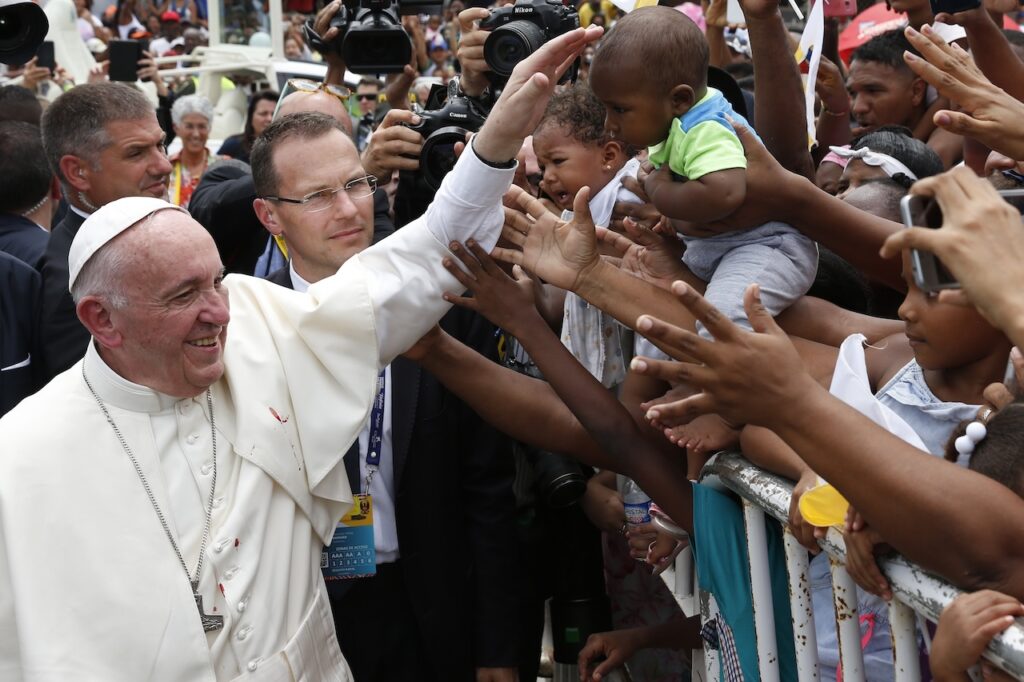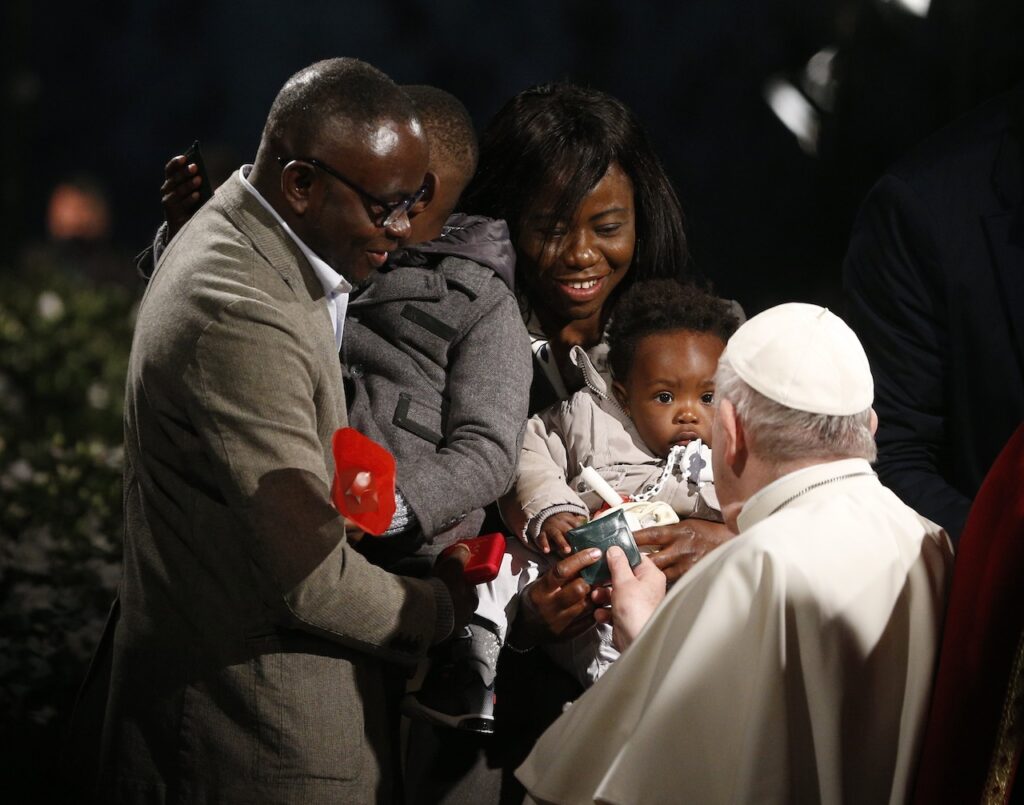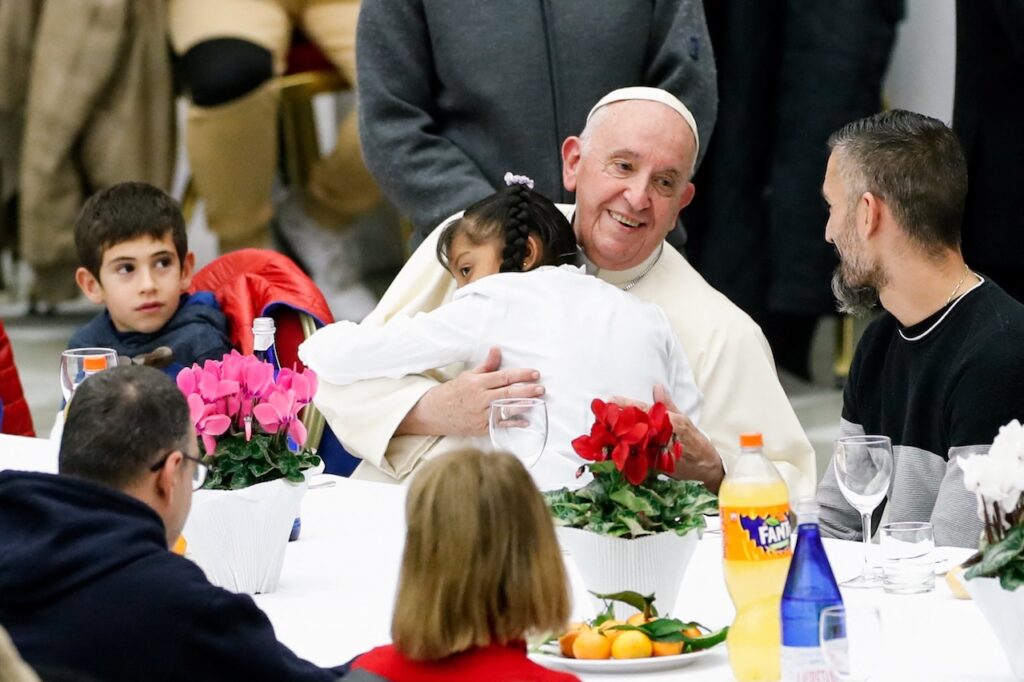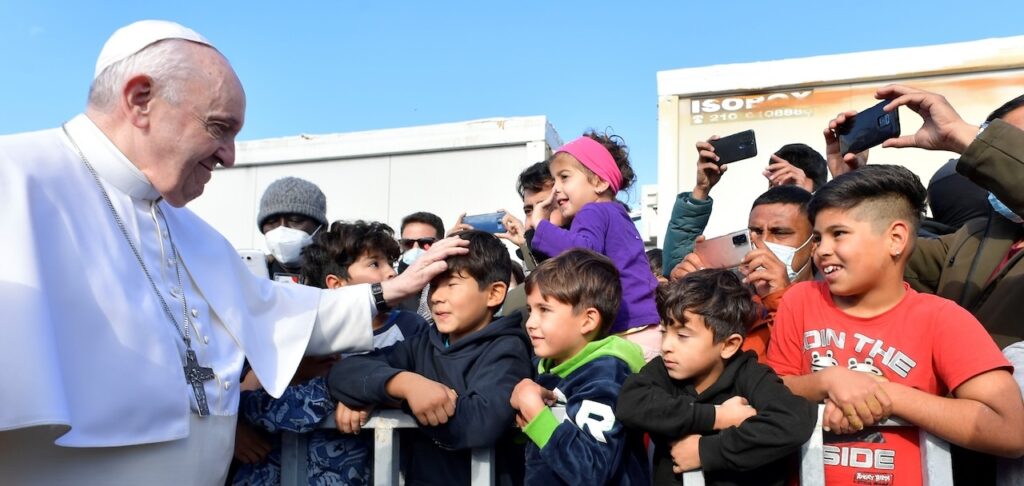NEW YORK (OSV News) — The news of Pope Francis’ passing on Easter Monday April 21 has sent ripples of grief and gratitude throughout the world, particularly within the leadership of the Catholic Church. From the slums of Buenos Aires, Argentina, to the halls of the Vatican, bishops are remembering a shepherd who redefined the papacy through his simplicity, pastoral zeal and tireless advocacy for the poor.
As tributes pour in from every corner of the globe, leaders are recalling not only the man who led the Church for more than a decade, but the pastor who never ceased to remind the faithful of God’s mercy, and the missionary who called the Church to “go forth” to the peripheries.
The first to react was American Cardinal Kevin Farrell, the Vatican’s camerlengo, who announced to the world that Pope Francis had died, saying: “He taught us to live the values of the Gospel with fidelity, courage and universal love, especially in favor of the poorest and most marginalized.”
Formerly a priest who ministered in the slums of Buenos Aires and now leads the church once shepherded by the pontiff when he was then-Cardinal Jorge Mario Bergoglio, Buenos Aires Archbishop Jorge García Cuerva referred to Pope Francis as “the pope of the slums.”
“He insisted on building bridges, he insisted that we live in universal brotherhood,” the prelate said. “The pope was our father, the father of the poor, the father of mercy. The best tribute we Argentines can pay to Francis is to unite.”

The Argentine bishops also released a joint statement, in which they expressed both deep sorrow and “the certain hope of Easter” over the death of the Holy Father.
“We thank God for the life, ministry and witness of faith,” said the statement released by the Argentine bishops’ conference, “of the one who knew how to guide the universal Church with humility, evangelical firmness and unconditional love for the poor, the excluded and the suffering.”
His magisterium, the text continued, “leaves an indelible mark on the journey of the Church.”
Similarly, the Latin American bishops’ council, known as CELAM, released a statement saying they joined the faithful people of God in mourning.
“He renewed the missionary impulse, reminding us that God is mercy, placing those on the peripheries at the center, urging us to live as brothers and sisters, encouraging us to welcome everyone, to be a synodal Church, and to care for our common home,” the bishops said.
Also from the “existential peripheries” Pope Francis so often highlighted, the Latin Patriarchate of Jerusalem is holding a requiem Mass in his honor April 23, reflecting on his commitment to peace and interfaith dialogue. In their message, they highlighted his role as a shepherd who bridged divides and fostered unity among diverse communities.

In the Gaza Strip, Holy Family Parish in Gaza City held Mass for the repose of the soul of Pope Francis April 21.
The first of Spain’s bishops to speak publicly was the secretary-general of the Spanish bishops’ conference, Auxiliary Bishop Francisco César García Magán, who said in a press conference that “the news has surprised us all.”
On the first day of the Easter octave, “in this context of resurrection and life,” the pontiff passed away – a coincidence also noted in the case of St. John Paul II, as recalled by the auxiliary bishop of Toledo.
Pope Francis, Bishop García Magán said, was “a pope who gave himself to the very end, in service to the people of God and the whole world.”
His Easter “urbi et orbi” blessing (“to the city of Rome and the world”) – was “his final gift to us,” along with his “prophetic, witness-bearing” visit to Regina Coeli prison on Holy Thursday, the Spanish prelate emphasized.
Cardinal Matteo Zuppi, archbishop of Bologna and president of the Italian bishops’ conference, expressed the condolences of the Italian episcopate, saying: “It is a moment of pain and great suffering for the entire Church.”
“We entrust our beloved Pope Francis to the Lord’s embrace,” he continued, “with the certainty – as he himself taught us – that ‘everything is revealed in mercy; everything is resolved in the merciful love of the Father.'”
In his message, Cardinal Zuppi invited all the churches in Italy to “ring the church bells as a sign of mourning” and to promote “moments of personal and communal prayer, in communion with one another and with the universal Church.”

The recently restored Notre Dame Cathedral in Paris rang its bells 88 times – once for each year of the Argentine pope’s life.
Archbishop Éric de Moulins-Beaufort of Reims, president of the French bishops’ conference, wrote that since the beginning, Pope Francis had asked the world to pray for him: “On this day, we say to him with all our hearts: ‘Holy Father, we pray for you – we Catholics, but also many men and women throughout the world who have heard in your voice a voice of the conscience of humanity.'”
“Pope Francis tirelessly worked to make the Church more synodal, free of all clericalism, moving toward the peripheries – the peripheries of the Church and those of our societies – bringing the joy of the Gospel of Jesus Christ,” Archbishop de Moulins-Beaufort wrote. “He gave Catholics a taste for being missionary disciples.”
From Ireland, a country Pope Francis visited in 2018, Archbishop Eamon Martin of Armagh and Primate of All Ireland, president of the Irish bishops’ conference, said: “Undoubtedly, in the coming days and weeks, many more memories of Pope Francis will emerge. But for me, it was his closeness and friendship with Christ that stood out above all else – in his compassion for the suffering and in the way he placed the vulnerable at the center of his ministry: the poor, refugees, victims of war, human trafficking, and all those who are exploited, neglected or excluded by the Church or society. He wanted to save them from the cold.”
The prelate also invited the faithful to share their memories in the “book of condolences” available on the homepage of CatholicBishops.ie and the bishops’ social media platforms, as reported by Italian news agency SIR.
Sweden’s Cardinal Anders Arborelius of Stockholm, wrote in a tribute: “Each pope has his own accent and charisma, his unique contribution to the fullness of Catholicism.”

The distinctive trait of Pope Francis, he wrote, was “poverty of spirit, which shines brightly and dazzles us. The fact that he was the first of all popes to take the name Francis is significant. In fact, it is surprising that no one had thought of it before. The choice of name is both symptomatic and prophetic of our times, in which the rich seem to grow ever richer and the poor increasingly vulnerable and neglected.”
He highlighted Pope Francis’ filial love for Jesus’ mother Mary, his awareness of the great challenges facing the Catholic Church, his relationship with Islam, his commitment to interreligious and ecumenical dialogue, and his vision for a synodal Church.
“Some have misunderstood this synodality,” he wrote, “and feared that it meant a change in doctrine or in the hierarchical structure of the Church. Here, Francis had to dig in his heels and emphasize that it was instead about becoming more attentive and responsive to the voice of the Gospel – and not yielding to ideologies or the pressures of the outside world.”

